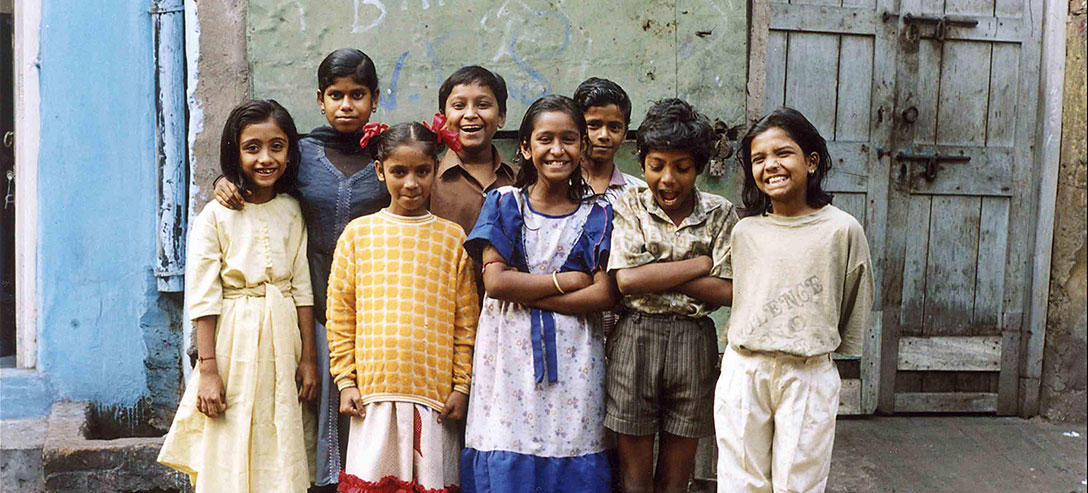Born Into Brothels
Peter Kurie
January is National Slavery and Human Trafficking Prevention Month, and the Sundance Institute Documentary Film Program is proud to highlight its support of seven projects that raise awareness of modern-day slavery and human trafficking at home and abroad. Human trafficking is the violation of human rights in which lives are traded, sold, exploited, abused and ruined. Here are some facts, courtesy of dosomething.org.
- Globally, the average cost of a slave is $90.
- Trafficking primarily involves exploitation which comes in many forms, including: forcing victims into prostitution, subjecting victims to slavery or involuntary servitude, and compelling victims to commit sex acts for the purpose of creating pornography.
- There are approximately 20 to 30 million slaves in the world today.
- Between 14,500 and 17,500 people are trafficked into the U.S. each year.
- Human trafficking is the third largest international crime industry (behind illegal drugs and arms trafficking). It reportedly generates a profit of $32 billion every year. Of that number, $15.5 billion is made in industrialized countries.
Educate yourself and raise awareness by watching these remarkable Sundance-supported films.
Born into Brothels (2004)
Directors: Zana Briski and Ross Kauffman
Documentary photographer Zana Briski journeyed into Calcutta’s underworld to photograph the city’s prostitutes. In return, she offered to teach the prostitutes’ children the basics of photography so that the kids could document their own lives on the streets of one of the world’s poorest cities. The resulting photographs, often astonishing, were exhibited around the world; many of them are seen in this film, which won the Academy Award for best documentary feature in 2005.
Cecilia (2015)
Director: Johar Pankaj
Delhi-based documentary filmmaker Johar Pankaj investigates the mysterious death of his housekeeper’s 14-year-old daughter. The human trafficker whom he believes is responsible is being protected by city officials and by the deceased teenager’s own relatives. But continual threats and promises of large sums of hush money won’t stop the filmmaker and his housekeeper from seeking the truth.
Girl Model (2011)
Directors: David Redmon and Ashley Sabin
Despite a lack of obvious similarities between Siberia and Tokyo, a thriving model industry connects these distant regions. Girl Model follows two protagonists involved in this industry: Ashley, a deeply ambivalent model scout who scours the Siberian countryside looking for fresh faces to send to the Japanese market, and one of her discoveries, Nadya, a thirteen year-old plucked from the Siberian countryside and dropped into the center of Tokyo with promises of a profitable career.
Stand with Sanju
Child servitude is a crime committed against millions of children worldwide. They’re forced to sacrifice their youth and their education. This four minute animated documentary demonstrates how consumer buying-power could end child slavery in the carpet industry.
The Storm Makers (2014)
Director: Guillaume Suon
Featuring brutally candid testimony, The Storm Makers is a chilling exposé of Cambodia’s human trafficking underworld and an eye-opening look at the complex cycle of poverty, despair and greed that fuels this brutal modern slave trade. More than half a million Cambodians work abroad and a staggering third of these have been sold as slaves. Most are young women, held prisoner and forced to work in horrific conditions, sometimes as prostitutes, in Malaysia, Thailand and Taiwan.
Traces of the Trade (2008)
Directors: Katrina Browne, Alla Kovgan, and Jude Ray
Producer/Director Katrina Browne tells the story of her forefathers, the largest slave-trading family in U.S. history. Given the myth that the South is solely responsible for slavery, viewers will be surprised to learn that Browne’s ancestors were Northerners. The film follows Browne and nine fellow family members on a remarkable journey which brings them face-to-face with the history and legacy of New England’s hidden enterprise.
Private Violence (2014)
Director: Cynthia Hill
Every day in the U.S., at least four women are murdered by abusive partners. The knee-jerk response is to ask: why doesn’t she just leave?” Private Violence shatters the brutality of this logic. Through the eyes of two survivors—Deanna Walters, a mother who seeks justice for the crimes committed against her at the hands of her estranged husband, and Kit Gruelle, an advocate who seeks justice for all women—we bear witness to the complicated and complex realities of intimate partner violence.




